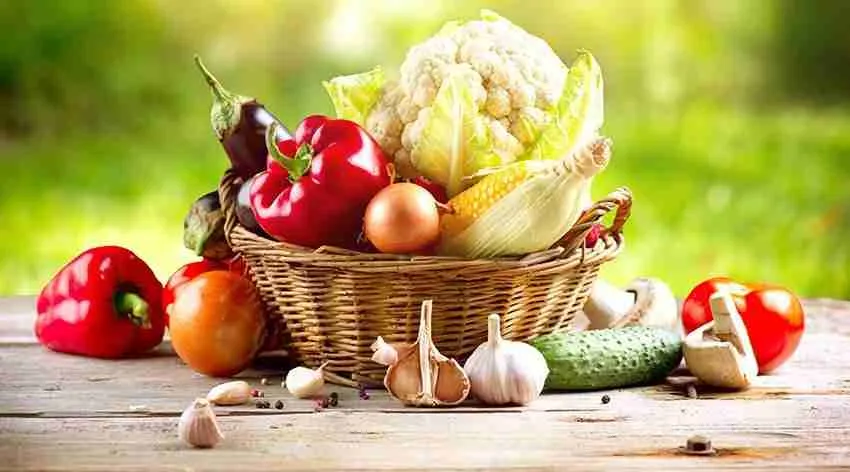Introduction
Viral fever is a common ailment characterized by an increase in body temperature due to a viral infection. It can cause symptoms such as fatigue, headache, body aches, and a general feeling of unwellness. While medical treatment is essential, dietary choices play a crucial role in managing and preventing viral fever. This article explores the foods to avoid and those to include in your diet to reduce the risk of viral fever and support a speedy recovery.
Understanding Viral Fever
Causes and Symptoms Viral fever is caused by various viral infections, such as influenza, dengue, or common cold viruses. Symptoms typically include high fever, chills, fatigue, muscle pain, and sometimes respiratory issues.
Importance of Diet in Managing Viral Fever Nutrition significantly impacts the immune system’s ability to fight infections. Certain foods can help strengthen the immune system, while others may exacerbate symptoms and delay recovery.
Foods to Avoid During Viral Fever
Sugary Foods and Drinks Sugar can suppress the immune system, making it harder for the body to fight off viral infections. Avoid sweets, sodas, and other sugary beverages.
Processed and Junk Foods Processed foods often contain high levels of unhealthy fats, sugars, and additives that can weaken the immune response. Fast food, packaged snacks, and ready-to-eat meals should be avoided.
Dairy Products Dairy products can increase mucus production, which may exacerbate respiratory symptoms associated with viral infections. Milk, cheese, and ice cream are best avoided during this time.
Fried and Fatty Foods Fried foods and those high in unhealthy fats can cause inflammation and weaken the immune system. Avoid fried snacks, fatty meats, and heavily oiled dishes.
Caffeinated Beverages Caffeine can lead to dehydration, which is detrimental when fighting a fever. Limit intake of coffee, tea, and energy drinks.
Alcohol Alcohol can impair the immune system and dehydrate the body, making it harder to recover from viral fever. It’s best to avoid alcohol entirely during illness.
Foods to Include During Viral Fever
Hydrating Foods and Fluids Staying hydrated is crucial when dealing with a fever. Include plenty of water, herbal teas, broths, and soups in your diet. Coconut water is also excellent for rehydration due to its electrolyte content.
Fruits and Vegetables Fresh fruits and vegetables are rich in vitamins, minerals, and antioxidants that boost the immune system. Citrus fruits like oranges and lemons are high in vitamin C, which is essential for immune function. Leafy greens, berries, and bell peppers are also excellent choices.
Lean Proteins Proteins are necessary for the repair and regeneration of body tissues. Opt for lean sources of protein such as chicken, turkey, tofu, beans, and legumes. Bone broth is particularly beneficial due to its nutrient content and soothing properties.
Whole Grains Whole grains like brown rice, quinoa, oats, and whole wheat provide essential nutrients and sustained energy. They also support digestive health, which is important when recovering from an illness.
Herbs and Spices Certain herbs and spices have antiviral and immune-boosting properties. Ginger, garlic, turmeric, and honey are known for their medicinal benefits. Incorporate these into your meals and teas to help fight the infection.
Probiotics Probiotics help maintain a healthy gut microbiome, which is integral to immune health. Yogurt (preferably non-dairy if you are avoiding dairy), kefir, sauerkraut, and other fermented foods are good sources of probiotics.
Sample Diet Plan for Managing Viral Fever
Breakfast
- Fresh fruit smoothie with spinach, berries, and a scoop of protein powder.
- Herbal tea with honey and ginger.
Mid-Morning Snack
- A handful of almonds or a piece of fruit like an apple or orange.
Lunch
- Chicken or vegetable soup with whole grain crackers.
- A side salad with mixed greens, bell peppers, and a light vinaigrette.
Afternoon Snack
- Coconut water or a probiotic-rich yogurt.
Dinner
- Grilled chicken or tofu with steamed vegetables and brown rice.
- A cup of turmeric tea.
Before Bed
- Chamomile tea with a teaspoon of honey.
Additional Tips for Managing Viral Fever
Rest and Sleep Adequate rest is essential for recovery. Ensure you get plenty of sleep and avoid strenuous activities.
Maintain Hygiene Practice good hygiene to prevent the spread of infection. Wash your hands frequently, use hand sanitizers, and avoid close contact with others if you are unwell.
Stay Hydrated Dehydration can worsen symptoms and prolong recovery. Drink plenty of fluids throughout the day.
Monitor Symptoms Keep track of your symptoms and seek medical advice if they worsen or do not improve within a few days.
FAQs: Foods to Avoid and Include During Viral Fever
- Can spicy foods help relieve symptoms of viral fever?
- Is it safe to drink herbal teas during viral fever?
- How can I stay hydrated if I don’t feel like drinking water?
- Are there any specific fruits that are particularly beneficial during viral fever?
- Should I completely avoid dairy during viral fever, or are there exceptions?
- How do probiotics help in managing viral fever?
Conclusion
Diet plays a pivotal role in managing viral fever and supporting the immune system. By avoiding certain foods and incorporating nutrient-dense options into your diet, you can help your body combat the infection more effectively and recover faster. Remember to stay hydrated, get plenty of rest, and maintain good hygiene practices to support your health during illness. With the right dietary choices and lifestyle habits, you can reduce the risk of viral fever and promote overall well-being.



